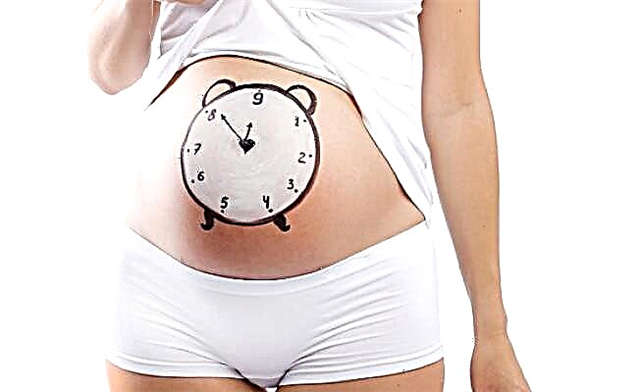 In the baby's first months of life, the digestive system has not yet been fully formed, this is what explains the frequent dyspeptic disorders. A newborn baby may have flatulence, frequent loose stools, or constipation (see table About Constipation: Signs and Causes of Constipation in an Infant). The inability to completely empty the bowels leads to abdominal pain, crying, and it is natural that every parent is looking for a cure for constipation for newborns.
In the baby's first months of life, the digestive system has not yet been fully formed, this is what explains the frequent dyspeptic disorders. A newborn baby may have flatulence, frequent loose stools, or constipation (see table About Constipation: Signs and Causes of Constipation in an Infant). The inability to completely empty the bowels leads to abdominal pain, crying, and it is natural that every parent is looking for a cure for constipation for newborns.
What to do for constipation
First you need to understand exactly what constipation is. Some mothers believe that if their child has not had a bowel movement for three to four days, then this is already a serious problem that needs to be addressed to a doctor. In fact, this is not entirely true, in some babies, a rare emptying of the intestines is considered a variant of the norm, and if the general well-being does not suffer, the baby is cheerful, eats well and sleeps, then your anxiety can be postponed. (How many times should a baby poop)
True constipation refers to a condition in which the baby, making all his efforts, that is, pushing, straining and groaning, cannot get rid of the accumulated feces. At the same time, he cries, presses his legs to his stomach, worries, refuses to feed.
The impossibility of emptying the intestines can bother just a few days or every day, it depends on the physiological characteristics of the body and on what you feed your baby - breast milk or formula.

With constipation, hard feces are released, sometimes with an admixture of mucus or blood streaks. During a bowel movement, the baby cries, his face turns red from exertion, severe anxiety appears, and this continues until the intestines are completely empty.
After the first constipation, you should not immediately run to the pharmacy and look for a laxative for newborns, any medicine is still chemistry and is unlikely to be useful for the baby's body. First you need to figure out the child's diet and eliminate the identified errors.
Pediatricians often advise young mothers to adhere to the following recommendations:
- If the baby eats mother's milk, then you need to be especially careful about compiling your diet. It is not advised to use strengthening foods; nutrition should be varied with plant components (Nutrition for a Nursing Mother).
- A child, both artificially and breastfed, needs additional portions of boiled water. Every day, the baby needs to give several sips of water from a small spoon in between feedings.
- The baby must move actively - daily exercise and light tummy massage have a positive effect on the state of the intestines. Lying on the stomach also helps with constipation.
- Babies of the first months of life with problems with stools need to be given dill water or a few drops of prune decoction.
If all the measures taken do not help, then it is necessary to visit the pediatrician - the doctor will assess the general condition of the child and suggest one of the safest laxatives for newborns.
Recommended and approved laxative medicines
Laxatives for children in the first months of life are available in several dosage forms and most often they are syrups, solutions or suppositories.

Most often, with rare problems with emptying and to provide quick relief to the tummy, pediatricians advise resorting to the use of rectal laxative suppositories, you can buy them at any pharmacy.
- Rectal suppositories act at the local level, therefore they do not have a negative effect on the entire body as a whole. Candles with glycerin are considered the safest, they can be used from the first days of a baby's life, so the expectant mother can stock up on them in advance. For newborn babies with constipation, you need to use 1/8 of the candle, for children from a month and older, the dosage is doubled. Laxative suppositories soften stool, make bowel movements painless and easy. You just need to remember that any medicine is used only in extreme cases, otherwise the intestines will get used to working with the help of its stimulation.
- Syrups and solutions. The pharmaceutical industry produces a wide variety of products to facilitate bowel movement. Mothers need to remember that they need to choose only the one where the child's age is indicated and the instructions are fully described.
- Prelax - the main active ingredient of the syrup is lactulose, which improves intestinal peristalsis and has a positive effect on its microflora. Prelax is also used as a prophylactic agent for constipation, the effect of its first use begins to manifest itself within an hour. More about syrup
- Duphalac the drug belongs to laxatives produced on the basis of natural components of milk whey. A delicious syrup can be given to a baby from the first days of life, you need to remember that the maximum effect from its use most often develops on the next day. In the first days of admission, flatulence may increase in the baby, after a few days it usually disappears. Duphalac has a positive effect on the normalization of the intestinal microflora, this leads to the stabilization of its work. Article about Duphalac
- Normolact Is another lactulose-based laxative. Taking the drug is started with high doses, then when the desired effect is achieved, they are gradually reduced. The medicine can be used for a long time.
- Microlax - a new generation drug that acts as a micro enema. The effect of its use comes pretty quickly, the only thing that stops many mothers from buying is the rather high price. Details about Mikrolax - instructions for use, pros and cons, price

Self-selected medications for constipation for newborns should only be an emergency aid. With frequent constipation, the baby's parents need to see a doctor, this will help identify some hereditary or congenital bowel diseases. With constipation in the first weeks of a child's life, young mothers should not panic - the baby's body adapts to the changed living conditions for him and adapts to food.
We read further: How to give an enema to a child



